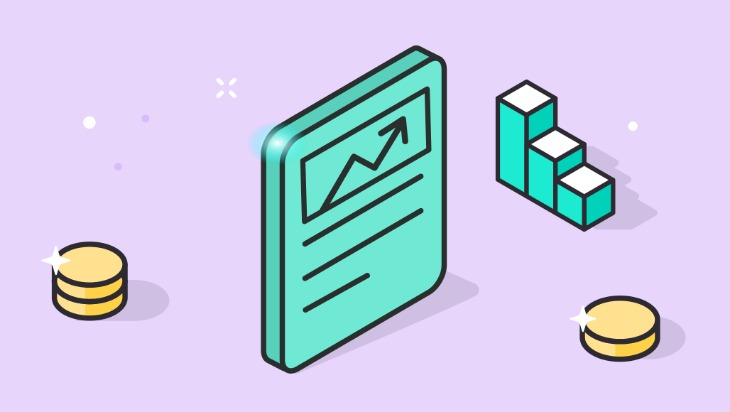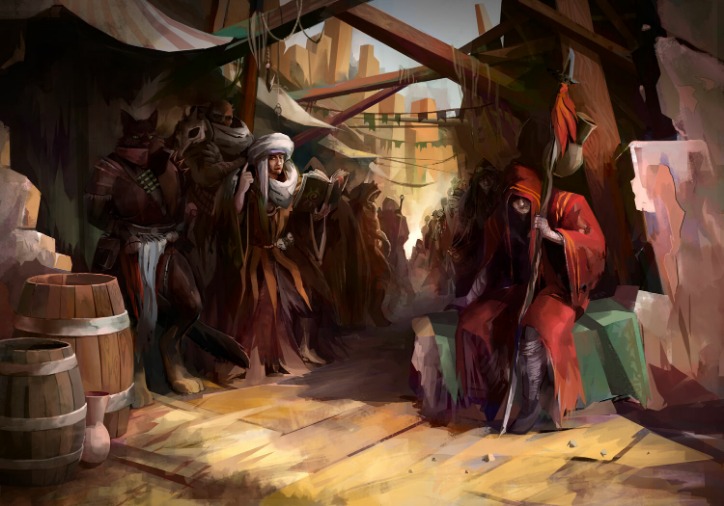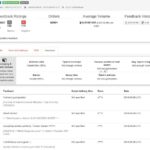Darknet Market: Meaning, Products, Silk Road

The dark market, often referred to as the darknet marketplace, is a hidden online platform where users can buy and sell goods and services outside traditional legal frameworks. These markets are typically accessible through specialized software and network configurations that anonymize user identities and transactions. Products traded on the dark market range from illegal substances and weapons to counterfeit documents and stolen data. A notable example of a dark market is the Silk Road, which gained notoriety for facilitating illicit drug transactions before being shut down by authorities. Participants often utilize cryptocurrencies to maintain privacy and security during their transactions. For those interested in exploring this clandestine world further, various marketplaces operate on the dark web, one of which can be accessed through a secure link such as this dark market. Understanding the mechanisms and risks involved with dark markets is essential for comprehending the broader landscape of online illegal trade and the measures law enforcement agencies employ to combat it.
- The platform’s activity has increased significantly over the past year, indicating its growing influence and market share in the underground economy.
- By offering heightened anonymity and stronger defenses against law enforcement, these markets attract criminals who feel they provide a safe environment.
- It has gained a reputation for being a reliable source of high-quality data for cybercriminals.
- Fill out the form to speak with our team about investigative professional services.
- High-profile markets sometimes close overnight, and new markets surge to enormous levels of popularity in no time.
Archived: Dark Web Marketplace Owners Charged With Facilitating $430M in Illegal Goods Sales
The dark market, commonly referred to as the dark web marketplace, is a hidden segment of the internet where illegal transactions often take place. Operating beyond the reach of regular search engines and law enforcement, these marketplaces facilitate the buying and selling of illicit goods and services. The dark web is accessed through specialized anonymizing networks, such as Tor, which help conceal users’ identities and locations.
Products typically traded on dark markets include drugs, counterfeit documents, stolen data, weapons, and hacking tools. These marketplaces operate in a gray legal area, providing a platform for both criminal vendors and buyers seeking anonymity. One of the most infamous dark web marketplaces was Silk Road, which gained notoriety for its extensive drug trade and encrypted transactions. Although Silk Road was shut down by authorities, its existence highlighted the scale and sophistication of dark web marketplaces.
Law enforcement agencies have increasingly focused on tackling dark markets, especially when they facilitate significant illegal transactions. In recent high-profile cases, dark web marketplace owners have been charged with facilitating hundreds of millions of dollars in illicit sales. For instance, prosecutions have targeted operators responsible for marketplaces that enabled the sale of illegal goods worth hundreds of millions of dollars, underscoring the ongoing efforts to combat these illegal activities.
Despite efforts to shut down these platforms, new dark markets continue to emerge, reflecting the resilience and adaptability of those involved. As the dark market landscape evolves, understanding its mechanisms and risks remains crucial for security, law enforcement, and policymakers committed to disrupting illegal trade online.
New frontier, new power: the retail environment in Australia’s dark market
The dark market, often associated with hidden corners of the internet, represents a clandestine segment of the online world where illegal activities flourish. These underground platforms facilitate the exchange of illicit products and services, operating beyond the reach of conventional law enforcement and regulatory agencies. The dark market’s scope encompasses a wide array of items, from controlled substances and firearms to counterfeit currency and stolen data.
Historically, one of the most notorious early examples of a dark market was the Silk Road, an anonymous online marketplace that revolutionized how illegal goods were bought and sold. Launched in 2011, it utilized Tor technology to ensure user anonymity and used cryptocurrencies such as Bitcoin to facilitate transactions. Although it was eventually shut down by authorities, the Silk Road set a precedent for subsequent dark markets and highlighted the potential scale and complexity of these hidden economies.
The dark market is continuously evolving, adapting to technological advancements and law enforcement efforts. A new frontier in this realm involves markets that operate with more sophisticated security measures, making detection and shutdown more challenging. These platforms frequently trade in high-value or high-demand illicit products, and they often employ various encryption techniques to veil transactions. This ongoing innovation signifies a shift in the retail environment of Australia’s dark market, where illegal trade continues to thrive despite increased surveillance and crackdown efforts.

The emergence of the dark market as a parallel retail environment poses significant challenges for local authorities. Due to the anonymity and decentralized nature of these platforms, regulating and policing illegal activities becomes complex. Their presence influences various societal factors, including public safety and drug abuse, prompting governments to develop more targeted strategies to combat illicit online trade. As the dark market persists as a resilient and adaptable part of the global underground economy, understanding its dynamics is crucial for devising effective countermeasures and ensuring the safety of society at large.
Dutch National Police Share Depth And Sophistication Of Genesis Market Identity Theft Operation
The dark market, often associated with the hidden corners of the internet, refers to online marketplaces that operate on encrypted networks, making them difficult to detect and regulate. These secretive platforms facilitate the trade of various illicit goods and services, often unregulated by traditional authorities. Understanding the scope and complexity of these markets is crucial, as they play a significant role in the proliferation of illegal activities across the globe.
Products sold within dark markets typically include drugs, weapons, counterfeit currencies, stolen data, and hacking tools. The anonymity provided by these platforms allows vendors and buyers to conceal their identities, making it challenging for law enforcement agencies to track and dismantle these operations effectively. One of the most infamous early examples was the Silk Road, a dark web marketplace that gained notoriety for facilitating illegal drug transactions. Despite its shutdown, it set a precedent for similar platforms and demonstrated the potential scale of underground markets.
Recent developments have highlighted the increasing sophistication of dark markets. Organizations like the Dutch National Police have shared insights into operations such as Genesis Market, which specializes in credential theft and identity fraud. Such operations involve the collection and sale of compromised login credentials, enabling identity theft on a large scale. These markets often feature advanced security measures and employ various techniques to evade detection, showcasing their depth and adaptability in the digital underground.
The ongoing evolution of dark markets underscores the importance of cybersecurity, law enforcement vigilance, and international cooperation. As these platforms continue to grow in complexity, understanding their mechanisms and the types of illegal activities they facilitate is essential for developing effective strategies to combat their influence and protect potential victims.
The Dark Market Economics of Human Trafficking
The dark market represents a hidden economy thriving outside the reach of traditional financial systems and regulatory oversight. Among its many illicit activities, human trafficking remains a deeply troubling aspect, driven by complex economic factors that facilitate the trade’s persistence. The profitability of the dark market makes it a lucrative enterprise for those involved, enabling traffickers to operate with relative anonymity and minimal risk. Understanding these dark market economics is crucial to devising effective strategies to combat human trafficking and disrupt these clandestine networks. For a deeper insight into the workings of these covert economies, explore the dark market.
Northern District of Illinois Owners of Empire Market Charged in Chicago With Operating $430 Million Dark Web Marketplace United States Department of Justice
The emergence of dark markets has revolutionized the landscape of illicit trade, creating a complex and clandestine economy that operates beyond the reach of traditional law enforcement. These hidden platforms facilitate a range of illegal activities, including drug trafficking, weapons smuggling, and human trafficking, often generating billions of dollars in revenue annually. The dark market structure allows vendors and buyers to communicate anonymously, utilizing encryption tools and cryptocurrencies to evade detection. Understanding the dark market economics is essential to dismantling these criminal enterprises and mitigating their devastating impact on society.

Recently, authorities in the United States announced charges against owners of a prominent dark web marketplace, known for facilitating human trafficking and drug sales, with operating a platform linked to approximately $430 million in transactions. This operation is a stark example of how the dark market serves as a lucrative hub for organized crime, connecting traffickers directly with consumers across the globe. The financial mechanisms of such markets rely heavily on cryptocurrencies, which enhance anonymity and complicate tracking efforts.
The dark market’s economic model hinges on several key elements:

- Decentralization and anonymity, allowing operators to run platforms without fear of immediate shutdown.
- Use of cryptocurrencies, primarily Bitcoin and other digital currencies, to facilitate secure and untraceable transactions.
- Low barriers to entry and high profit margins, attracting underground entrepreneurs and criminal organizations.
- Forensic challenges faced by law enforcement due to the encrypted and anonymous nature of these markets.
These factors contribute to the persistence and growth of dark markets, making them formidable opponents for regulatory agencies. The recent charges highlight the concerted efforts by authorities to target the financial backbone of these illegal operations. Combating the dark market economy requires coordinated international efforts, advanced cybersecurity measures, and robust legal frameworks to track and dismantle these digital enterprises effectively.
How Boutique Darknet Markets are Making Drug Busts Harder DarkBlue Intelligence
The dark market landscape has evolved significantly over recent years, becoming a complex ecosystem that facilitates a wide range of illegal activities, including human trafficking and drug distribution. These illicit marketplaces operate predominantly on the dark web, utilizing advanced encryption techniques and anonymous communication tools to evade law enforcement detection. The economic model of these dark markets relies heavily on anonymized transactions, often facilitated by cryptocurrencies, which further complicates efforts to track and dismantle these operations.

An emerging trend in this realm is the rise of boutique darknet markets, which focus on specialized niches, offering more tailored services and products. These markets tend to have lower profiles and are less susceptible to large-scale police raids, making them especially challenging to disrupt. This specialization enhances the resilience of the dark market ecosystem, as it continuously adapts to law enforcement tactics and technological advancements. Consequently, drug busts are becoming increasingly difficult, since these markets frequently operate using decentralized, self-regulating communities that minimize identifiable points of attack for authorities.
The dark market economy incentivizes participants through a carefully balanced system of reputation, encryption, and trust, fostering an environment where illicit transactions can occur with relative safety for both sellers and buyers. This structure complicates detection efforts, especially when combined with the use of advanced privacy tools and decentralized networks that cloak user activities. As a result, law enforcement faces significant challenges in identifying key players, seizing illegal goods, and dismantling the infrastructure that sustains these marketplaces.
Understanding the dark market’s economics is crucial for developing effective strategies to combat illegal activities on the dark web. It requires a combination of technological innovation, international cooperation, and targeted investigations that can adapt to the evolving nature of these clandestine economies. Ultimately, this ongoing struggle underscores the importance of staying ahead of emerging trends within the dark market, to reduce the impact of illegal trade and protect global security.
DarkMarket Wikipedia
The dark market represents a hidden segment of the internet where illegal activities are conducted largely outside the reach of conventional law enforcement. This clandestine economy is characterized by anonymous transactions, often facilitated through cryptocurrencies and encrypted communication channels. One of the most concerning aspects of the dark market is its role in facilitating illegal trade, including the sale of illicit drugs, weapons, stolen data, and human trafficking services. The complex economic ecosystem of these markets operates on principles of supply and demand, similar to legitimate markets, but with significantly less oversight and regulation.
Understanding the *dark market*’s economics is crucial to grasping how illegal activities such as human trafficking thrive within these environments. These illicit marketplaces rely heavily on anonymity and security, which attract both buyers and sellers seeking to avoid detection. A common feature is the use of decentralized networks and encrypted communication tools that obscure identities and transaction details. This setup not only protects participants but also creates a resilient infrastructure that is difficult for law enforcement agencies to dismantle effectively.
The *dark market* for human trafficking is driven by high demand and lucrative profits. Criminal organizations exploit vulnerable populations by offering trafficked individuals through various channels within these marketplaces. The economic model depends on the manipulation of supply and demand, with traffickers offering different levels of service and prices to cater to diverse buyers. This underground economy operates independently of legal financial systems, making it challenging to track and disrupt. The profitability of human trafficking within the dark market incentivizes perpetrators to continually evolve their methods and technologies to evade detection and maintain their operations.
Efforts to combat the *dark market* and its associated illegal activities involve a combination of technological advancements, international cooperation, and policy initiatives. Law enforcement agencies are increasingly utilizing data analysis, cyber forensics, and intelligence sharing to identify and shut down these illicit marketplaces. Public awareness and legal frameworks aimed at disrupting the financial mechanisms supporting these markets are also essential components of a comprehensive strategy. Ultimately, addressing the dark market’s economic roots is vital to reducing the prevalence of human trafficking and other forms of organized crime operating within these digital spaces.


